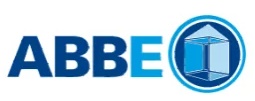Examination - Damp CSTDB/CSDB
The damp examination is a requirement for achieving either the ‘Certificated Surveyor of Timber & Dampness in Buildings (CSTDB)’ or ‘Certificated Surveyor of Dampness in Buildings (CSDB)’ qualification.
For those that want to book just the Dampness Exam, please click on the button below.
Please note: to achieve CSTDB ot CSDB status, you will have to also pass the related Timber Exam and Legal, Health & Safety exam.
Contact Us About the Course >>
How is the damp exam structured?
The Condensation & Damp exam is run over 1 day and is typically broken down into 2 sessions:
- 11:30am – 13:45pm – Written paper
- 14:00pm – 17:00pm – Oral Examination (20 minutes) *
- PLEASE NOTE: Timings for oral exams are given to individuals on the day
Candidates are required to achieve a 50% mark on each element of the exams to receive a pass.
If you are sitting any of the additional examinations to achieve the CSDB or CSTDB, these exams are normally run over two days and run in tandem with the Damp examination. If you do choose to take further exams to achieve the CSDB/CSTDB status, candidates can sit all relevant modules at the same time or take them individually during different dates. The other related examinations are typically broken down as follows:
- 9:00am – 11:00am - Written paper
- This exam is also required to achieve the Certificated Surveyor in Structural waterproofing (CSSW) qualification
- 9:30am – 11:45am - Written paper
- 12.00pm – 17.00pm: Timber identification & oral examination (20 minutes each) *
- PLEASE NOTE: Timings for identification & oral exams are given to indivduals on the day
In the Timber Identification exam, candidates must correctly identify the correct fungus and/or infestation within twelve timber samples. The oral exam will involve an interview with two examiners asking you questions about a situation you might be presented with while working in the industry.
How do I get CSTDB or CSDB qualified?
To achieve the Certificated Surveyor of Dampness in Buildings (CSDB) qualification to are required to pass the below modules:
- Legal and Health & Safety
- Condensation & Damp
To achieve the Certificated Surveyor of Timber & Dampness in Buildings (CSTDB) qualification to are required to pass the below modules;
- Legal and Health & Safety
- Condensation & Damp
- Timber module
Download the syllabus for these qualification as this breaks each module down and shows what you could be tested on during the examinations. This is a very valuable revision tool along with our recommended reading list.
CSTDB / CSDB Syllabus
ABBE

The PCA works in partnership with ABBE (the‘Awarding Body for the Built Environment’) to audit all of the exams associated with the CSTDB/CSDB qualifications. Candidates successfully passing the CSTDB/CSDB examinations from 2018 onwards will be awarded the ‘ABBE/PCA Level 3 Certificated Surveyor of Timber and Dampness in Buildings / ABBE/PCA Level 3 Certificated Surveyor of Dampness in Buildings’ through ABBE (Awarding Body for the Built Environment).
Along with the rigour and professionalism of the PCA examination process, this means the Damp Examination, and all associated CSTDB & CSDB exams will be independently verified by UK leading award organisation within the construction industry!
Information on the Damp Examination Preparation course
For those looking to prepare more for the condensation & damp exam, there is a specific 'damp examination preparation course' that is particularly useful for those candidates who have not recently sat an exam, to help them practice exam techniques by working through some past papers with a tutor. It also provides a valuable opportunity for candidates to clarify any areas where they may be unsure prior to sitting the formal examination. Click on the button below to view availability and dates.
More about the Exam Preparation Course >>
Past Papers - CSTBD / CSDB
To help support candidates both during their for forthcoming exams, there are example examination papers you can view by clicking the button options below:
ID & Treatment of Damp - Example Paper >>